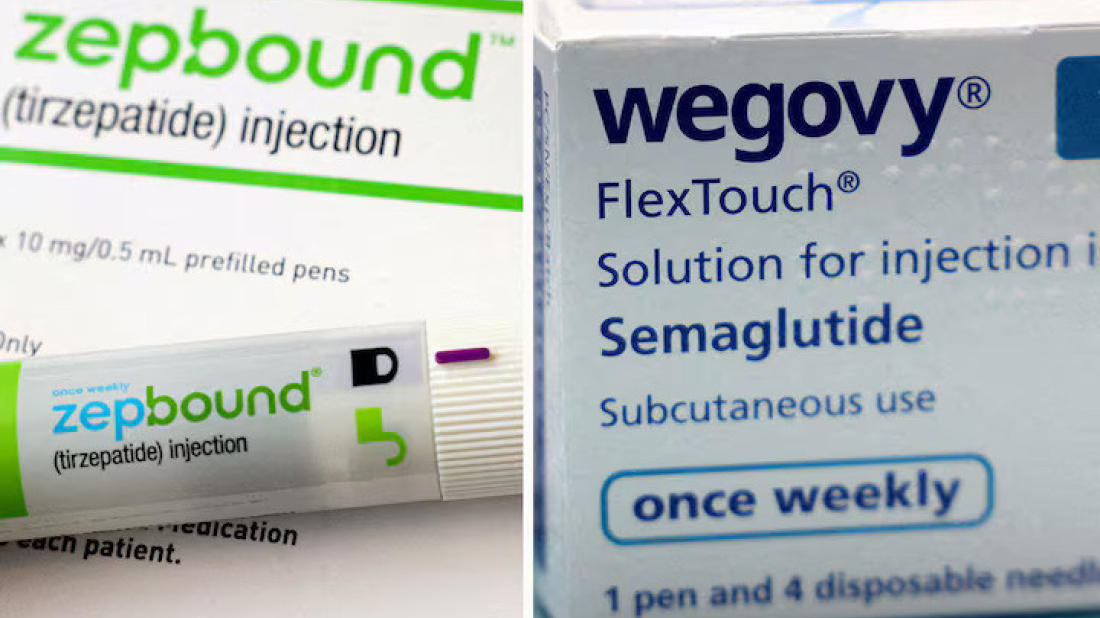Somali airstrike kills 15 al-Shabaab militants in Middle Shabelle
The Somali Army carried out a targeted airstrike in southern Somalia, killing 15 al-Shabaab militants, the country’s Defence Ministry said on Sunday...

An analysis of U.S. health claims reveals that while GLP-1 drugs like Wegovy may aid weight loss, they significantly increase medical costs—rising to $18,507 annually—without reducing obesity-related health events, raising concerns for insurers and employers.
An analysis of U.S. health insurance claims shared with Reuters indicates that while medications like Wegovy may help reduce weight, they do not lower medical expenses.
After two years of treatment with Novo Nordisk’s Wegovy or other GLP-1 drugs, the average annual cost of care for patients with obesity rose to $18,507- a 46% increase from the prior average of $12,695. This data, provided by pharmacy benefits manager Prime Therapeutics, highlights the financial implications of obesity treatment.
In a control group of patients not taking GLP-1 drugs, costs increased by 14% over the same period. For those on GLP-1 medications, the rise in expenses was mainly due to higher prescription drug costs, though medical costs also grew. The analysis found no decrease in obesity-related medical events - such as heart attacks, strokes, or type 2 diabetes diagnoses -compared to the control group.
Novo Nordisk and Eli Lilly, makers of the GLP-1 weight-loss drug Zepbound, have earned billions since their U.S. launches. While they claim that their medications could reduce healthcare costs linked to obesity, many U.S. employers and officials hesitate to cover these effective but costly treatments due to high upfront expenses and uncertain future savings.
"The budget hit here is frightening for a lot of governments and private entities," said Ben Ippolito, an economist at the American Enterprise Institute. He noted that the potential demand for these drugs is immense. Analysts predict the weight-loss drug market could reach $150 billion annually in the next decade.
Novo Nordisk emphasized that treating obesity is associated with improved medical outcomes, even though officials have not yet determined how to quantify these savings. Eli Lilly did not respond to a request for comment.
A study by Prime Therapeutics found that only one-in-four patients prescribed GLP-1 drugs like Wegovy or Ozempic for weight loss continued taking them after two years, leading to concerns about the cost-effectiveness of these medications.
With an estimated additional expense of $11,200 per patient in the first two years, Prime cautioned that without sustained use and positive health outcomes, insurers may need to reconsider their coverage of these weight-loss drugs.
U.S. Ambassador to NATO Matthew Whitaker said China has the power to bring an end to Russia’s war in Ukraine, arguing that Beijing is enabling Moscow’s military campaign.
American figure skating star Ilia Malinin endured a dramatic collapse in the men’s free skate on Friday night, falling twice and tumbling out of medal contention at the Milan Cortina Winter Olympics as Kazakhstan’s Mikhail Shaidorov surged to a surprise gold medal.
“Respected and feared globally,” U.S. President Donald Trump told troops at Fort Bragg on Friday (13 February), framing America’s renewed strength against to mounting pressure on Iran amid stalled nuclear talks.
Speaking at Munich Security Conference, Ukrainian foreign minister Andrii Sybiha calls for decisive steps ahead of expected Geneva talks
Thousands of fans packed River Plate’s Monumental Stadium in Buenos Aires on Friday for the first of three sold-out concerts by Puerto Rican reggaeton star Bad Bunny, as part of his “Debí Tirar Más Fotos” World Tour.
Measles cases across Europe and Central Asia fell sharply in 2025 compared to the previous year but health officials have warned that the risk of fresh outbreaks remains unless vaccination gaps are urgently addressed.
A Florida university has become a new hotspot in a widening U.S. measles outbreak, with health officials confirming multiple infections and hospitalisations.
The World Health Organization has added the Nipah virus to its list of the world’s top 10 priority diseases, alongside COVID-19 and the Zika virus, warning that its epidemic potential highlights the global risk posed by fast-spreading outbreaks.
Belgian authorities are examining suspected cases of infants falling ill after consuming recalled Nestle baby formula, amid warnings that confirmed infections may be underestimated due to limited testing requirements.
Two Nipah infections involving health workers in India have triggered heightened screening across Southeast Asia as authorities move to prevent the high fatality virus from spreading beyond the country.
You can download the AnewZ application from Play Store and the App Store.

What is your opinion on this topic?
Leave the first comment